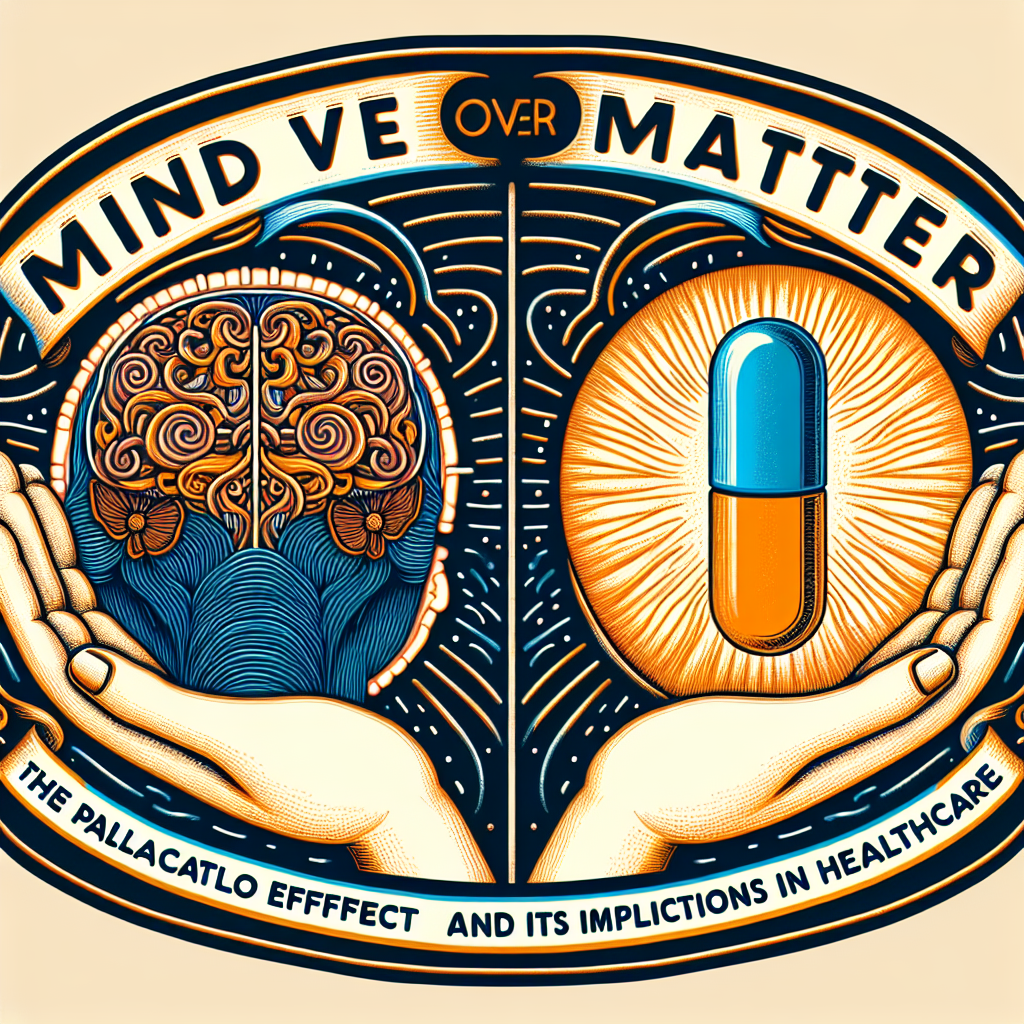
Mind Over Matter: The Proven Placebo Effect and Its Implications in Healthcare
Introduction
Imagine stepping into a doctor’s office feeling run-down and defeated, only to leave with a prescription for a sugar pill. Minutes later, you’re filled with energy, as if the weight of your ailments has been lifted. This remarkable phenomenon, known as the placebo effect, illustrates the power of our minds in influencing our health outcomes. The mind’s extraordinary ability to affect bodily functions—in effect, making positive changes in our physical health purely through belief—brings forth a critical conversation pertinent to both patients and healthcare providers. In this article, we’ll explore "Mind Over Matter: The Placebo Effect and Its Implications in Healthcare," delving into the psychological mechanisms at play, its applications, fascinating case studies, and what this means for the future of healthcare.
Understanding the Placebo Effect
What Is the Placebo Effect?
The placebo effect describes a situation where a patient experiences an improvement in health after receiving a treatment that has no therapeutic effect—like a sugar pill or saline injection. The involvement of the patient’s belief and perception plays a crucial role, showing how the mind can facilitate physical healing. The key takeaway is that the brain’s expectations can significantly influence the body’s physiology.
How Does It Work?
The mechanics behind the placebo effect are complex and involve several psychological and neurobiological processes. The brain releases neurochemicals like endorphins and dopamine when a patient believes they’re receiving treatment. These chemicals can reduce pain and stimulate feelings of well-being, even in the absence of active treatment.
The Power of Expectation
A fundamental aspect of the placebo effect is expectation. A 2008 study published in Nature found that participants who were told they would receive an effective treatment had greater symptom relief even if the treatment was inactive. This finding emphasizes how powerful belief is in shaping our health outcomes.
Case Studies
Case Study 1: Chronic Pain and the Placebo Response
In a seminal study focusing on chronic pain, participants who were administered a placebo and informed it was an effective analgesic reported a significant reduction in pain levels. An interesting aspect of this study was the neurological imaging which displayed changes in brain activity consistent with pain relief, despite the absence of any active medication.
Relevance: This case highlights that even in the context of severe pain, the mind’s ability to believe in the treatment plays a crucial role, showcasing the implications of the placebo effect in pain management strategies.
Case Study 2: Depression and Antidepressant Placebos
A meta-analysis of studies involving antidepressants indicated that nearly 50% of the treatment effect in participants was attributable to the placebo effect. Patients who believed they were receiving antidepressant medication experienced significant mood improvements, akin to those receiving actual pharmaceuticals.
Relevance: This raises vital questions about the ethics and practices of prescribing antidepressants, suggesting that boosting patients’ confidence in treatment could yield similar results without medications.
Case Study 3: Placebo in Surgical Procedures
In research spanning various surgical interventions, some patients received sham surgeries with incisions that healed like genuine surgeries. Remarkably, many reported improvements that mirrored those undergoing actual operations. The 2002 study on arthroscopic knee surgery is one such example where both groups exhibited nearly indistinguishable results.
Relevance: This compels us to consider whether certain invasive procedures could be performed less frequently, turning to placebo responses as a viable alternative.
Implications of the Placebo Effect in Healthcare
Ethical Considerations in Treatment
The ethical conundrum of using placebos in clinical practice has long been debated. Some healthcare providers question whether it is morally acceptable to administer a treatment that one knows is ineffective. But considering the numerous positive outcomes driven by belief and expectation, should healthcare move toward integrating placebos more openly?
Patient-Provider Relationship
The therapeutic alliance between patient and provider is vital. How a physician communicates treatment options significantly impacts the patient’s belief in the treatment. Providers can foster openness, empathy, and encouragement, leading to potentially enhanced patient outcomes by simply introducing a strong sense of trust and care.
Cost-Effective Treatment Solutions
With rising healthcare costs, the integration of the placebo effect into treatment plans can offer cost-effective alternatives. Understanding how to harness the mind’s power while minimizing unnecessary medications can drive substantial savings for both patients and healthcare systems alike.
Table: Potential Cost-Savings Using Placebo Effect
| Treatment Type | Estimated Cost of Active Treatment | Estimated Cost of Placebo Treatment | Potential Savings |
|---|---|---|---|
| Chronic Pain Medications | $200/month | $10/month | $190/month |
| Antidepressants | $500/month | $10/month | $490/month |
| Arthroscopic Surgery | $10,000 (one-time) | $1,000 (sham procedure) | $9,000 |
The Future of the Placebo Effect in Clinical Practice
Integrating Placebos in Research
The future of clinical research may shift. Instead of dismissing placebo-controlled trials, researchers could explore the psychological mechanisms further, focusing on how effective communication and patient perceptions lead to improved health outcomes.
Training for Healthcare Providers
Training programs for healthcare providers could incorporate the principles of the placebo effect, emphasizing the power of communication to enhance patients’ expectations and overall health experiences. This reorientation could transform medical education, focusing not just on prescriptions but also on empowerment through effective patient interaction.
Conclusion
The phrase "Mind Over Matter" truly encapsulates the extraordinary nature of the placebo effect in healthcare. As we navigate a rapidly changing medical landscape, understanding the implications behind belief, expectation, and their profound impact on human health becomes essential. By recognizing the role that our minds play in physical health, we can foster a future where healing is as much psychological as it is physiological.
As we move forward, both patients and healthcare providers must embrace the power of belief to enhance treatment outcomes. From re-evaluating long-standing treatment paradigms to integrating psychological insights into care, the future holds great promise for unlocking deeper healing through the mind.
FAQs
Q1: What is the placebo effect in simple terms?
A: The placebo effect occurs when a patient experiences real improvements in their condition after receiving a treatment that has no therapeutic value, usually due to their belief in its effectiveness.
Q2: Can the placebo effect be harmful?
A: While the placebo effect can lead to positive outcomes, it could also potentially delay proper treatment, particularly in serious illnesses. Transparency about treatment is essential.
Q3: Is the placebo effect the same for everyone?
A: No, the placebo effect varies among individuals. Factors such as personality, previous experiences, and the therapeutic environment can influence the strength of the placebo response.
Q4: How can healthcare providers use the placebo effect ethically?
A: Healthcare providers can ethically harness the placebo effect by fostering a strong connection with patients, encouraging belief in treatment, and providing supportive care—all without misleading the patient.
Q5: Are there any conditions where the placebo effect is remarkably effective?
A: The placebo effect tends to be particularly effective in conditions such as chronic pain, anxiety, and depression, where psychological factors play a significant role in symptoms.
In wrapping up, the exploration of "Mind Over Matter: The Placebo Effect and Its Implications in Healthcare" not only highlights the potential of the human mind’s belief system but also beckons a future of adaptable healthcare practices poised to utilize the benefits of this fascinating phenomenon.

















